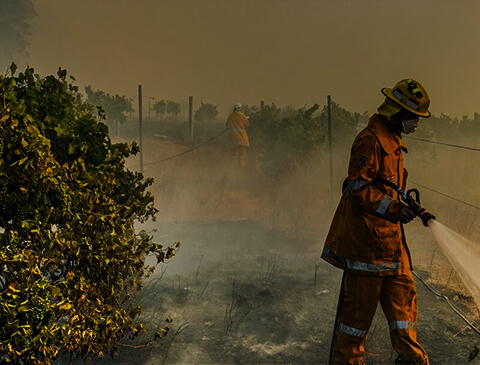What to expect being a volunteer
Being an emergency services volunteer is a rewarding opportunity to give back to the community. With both responding and support roles available, there's a part everyone can play in making WA a safer state.
All volunteers are provided with:
- Training to perform your role
- Insurance to cover injury
- Necessary protective equipment
- Access to mental health and other support
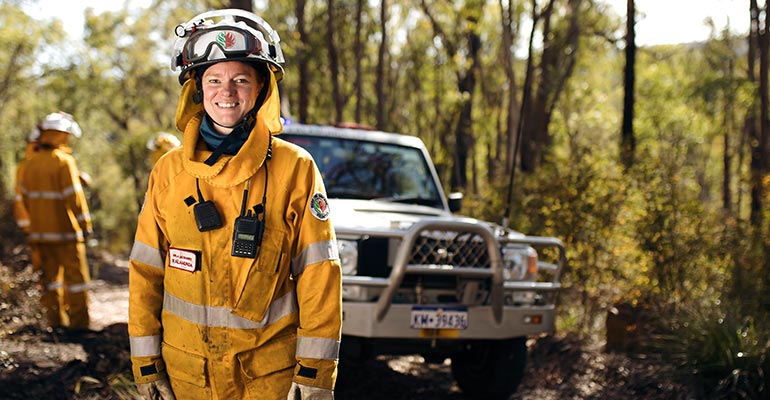
Bush Fire Services
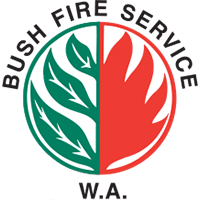
The Bush Fire Brigades provide fire prevention and response capabilities in their local area. These fires can be of bush and scrub or structural.
There are both responder and support roles available, depending on your location and the current need of the brigade. Here’s some examples of roles which may be available. It is best to search this website for brigades who are recruiting or contact the Bush Fire Brigades Association.
Bush Fire Services Responder Roles
Communications Support
In a Communications Support role, you will be trained to monitor radio communications and maintain whiteboards from the Incident Control Vehicle. Some experience in attending bushfire incidents is preferred, but not required.
Firefighter
As a firefighter, you will be trained to respond to bushfire incidents in your local area, and to participate in controlled burns. Training includes safety, fire suppression methods, radio communications and use of various equipment.
Lieutenant
As the Lieutenant, you will ensure there is an experienced and balanced crew available, and that all equipment and vehicles are ready for use. While at an incident, the Lieutenant supports the Captain or the relevant incident controller.
Bush Fire Services Support Roles
Equipment Officer
In this role you will be responsible for ensuring Brigade and personal equipment is ready for use. Maintaining asset registers, reviewing stock levels and coordinating maintenance and repair will require good organisational and mechanical skills.
Duty Officer
You will be responsible for calling Brigade volunteers during an incident and assigning them to a crew changeover. This role is essential to keep volunteers well-rested and safe, and to improve effectiveness of firefighting efforts.
Secretary
As the Secretary, you will be tasked with managing the administration of the Brigade, including meeting preparation, Brigade correspondence and working with local government representatives. No fire response training or experience is required.
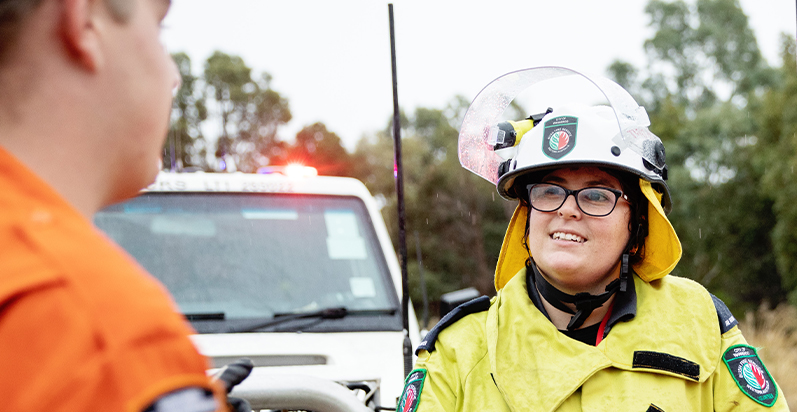
Fire & Emergency Services
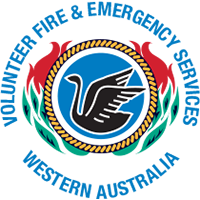
Fire and Emergency Services volunteers respond to a range of local emergencies including bushfires, floods, vehicle crashes and land searches for missing persons.
There are both responder and support roles available, depending on your location and the current need. Here’s some examples of roles which may be available. It is best to search this website for brigades who are recruiting or contact the VFES Association.
Fire & Emergency Responder Roles
Captain
In this leadership role, you will be responsible for VFES operations and volunteers. This includes internal systems, compliance of policies, managing stakeholder relationships and most importantly, volunteer safety and mental health.
Lieutenant
As the Lieutenant, you will work with the Captain in response to incidents. You will be responsible for several administrative duties and may specialise in structure fire, road crash rescue, bushfire or other types of incidents when required.
Equipment Officer
As the Equipment Officer, you will ensure all volunteers are prepared with appropriate equipment that is in good working order. Good organisational skills and a sound knowledge of equipment are a must for this role.
Fire & Emergency Support Roles
Social Media Coordinator
As the Social Media Coordinator, you will manage the Brigade’s social media platforms. In this role you will work within the guidelines of your unit to provide the community with safety information, updates and alerts.
Social Activity Organiser
As the Social Activity Organiser, you will be responsible for organising social events and functions to provide volunteers with opportunities to form social connections. This role helps to both maintain and boost team morale.
Administration
If you have good organisation and administration skills, the roles of Secretary or Treasurer may suit you. These roles manage a number of important duties, and may be split into one or two roles, depending on the location.
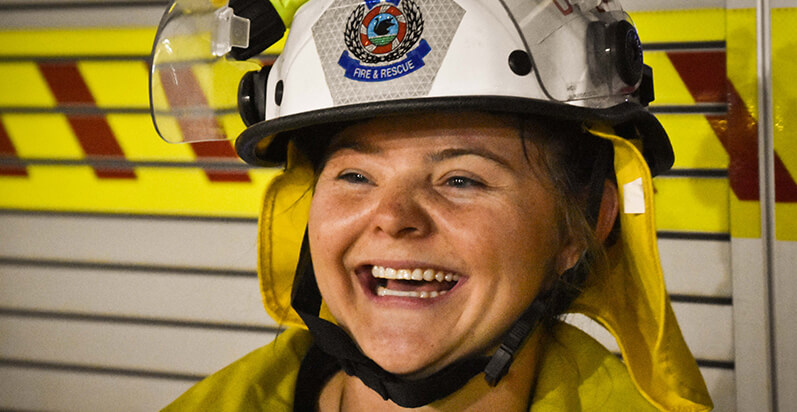
Fire & Rescue Services
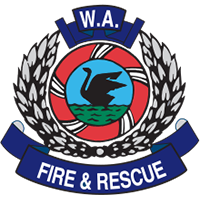
Fire and Rescue Service volunteers respond to local emergencies involving vehicles, related to an industrial incident, or resulting from a bush, scrub or structural fire.
There are both responder and support roles available, depending on your location and the current need. Here’s some examples of roles which may be available. It is best to search this website for brigades who are recruiting or contact the VFRS Association.
Fire & Rescue Responder Roles
Firefighter
As a Firefighter, you will first receive basic training before being placed on a probation period. If successful, you will be able to attend incidents relevant to your level of training.
Driver or Pump Operator
In these two roles, you will receive basic firefighting training, as well as specialised training. As a Driver, you will learn how to drive firefighting vehicles on road and off-road. As a Pump Operator you will learn how to operate the fire truck hoses.
Vehicle Rescue Response
As a member of the Vehicle Rescue Response team, you will be trained to respond to road crashes. In this role you will learn how to manage injuries and handle the transfer of casualties, as well as how to remove someone from a vehicle.
Fire & Rescue Support Roles
Secretary/Treasurer
These roles are ideal for anyone with good administration skills. You may perform a number of tasks including maintaining records and dealing with correspondence. You may choose to be an active firefighter, and also hold one of these roles.
Training Officers
As the Training Officer, you will be responsible for maintaining training records and organising training schedules and events for volunteers in the Brigade. Administrative skills and some level of involvement in incidents may be required.
Social Club Organiser
As the Social Club Organiser, you will provide valuable support to the Brigade by giving volunteers opportunities to socialise. In this role you will be responsible for organising activities within the Brigade and the community.
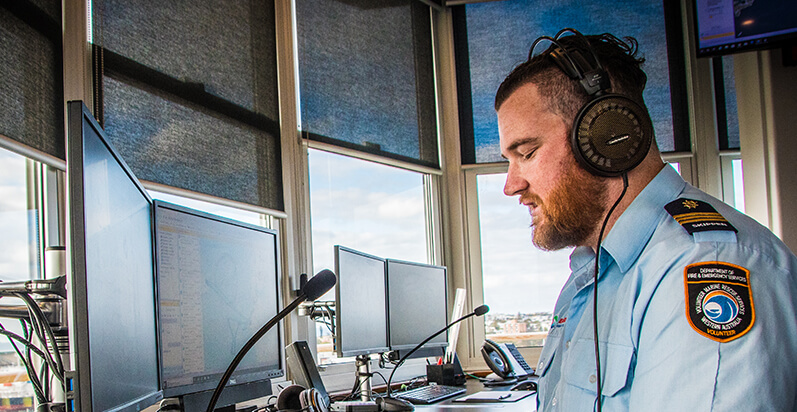
Marine Rescue WA
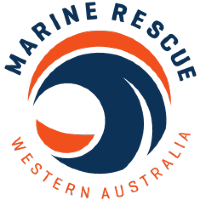
Marine Rescue volunteers work in close liaison with the WA Police Force to coordinate and perform marine rescue activities as well as assisting during other emergencies including bushfires.
There are both responder and support roles available, depending on your location and the current need. Here’s some examples of roles which may be available. It is best to search this website for groups who are recruiting or contact the VMR Association.
Marine Rescue Responder Roles
Rescue Skipper
As the Rescue Skipper, you will be trained to respond to marine search and rescue operations under the direction of WA Police. You will be trained to command vessels up to 30 nautical miles and will be responsible for the safety of the vessel and all people on board.
Marine Rescue Senior Crew
As part of the Senior Crew, you will support the Rescue Skipper on vessels attending to incidents. You will be trained in deck operations, marine navigation and shipboard safety, and will be responsible for the safety of operations and crew.
Marine Rescue Crew
As part of the Crew, you will be trained in maritime Occupational Health and Safety, vessel deck operations, sea survival and shipboard safety. When on-board the rescue vessel, you will receive duties under direction of the Senior Crew and Rescue Skipper.
Marine Rescue Support Roles
Shore Based Radio Operator
In this Radio Operator role, you will relay critical information to the operational rescue crews from the shore. You will also monitor marine radios for vessels logging on and off, provide weather information and intercept distress calls for assistance.
Treasurer
As the Treasurer, you will manage all financial activity according to requirements of a registered charity. This includes providing details of income and spending, working with local government and developing financial statements. No incident response training or experience is required.
Equipment Officer
As the Equipment Officer, you will maintain equipment on vessels and at the facility. You will coordinate maintenance and repair, maintain asset registers, review stock levels and order replacements. This role is ideal if you have good organisational and mechanical skills.
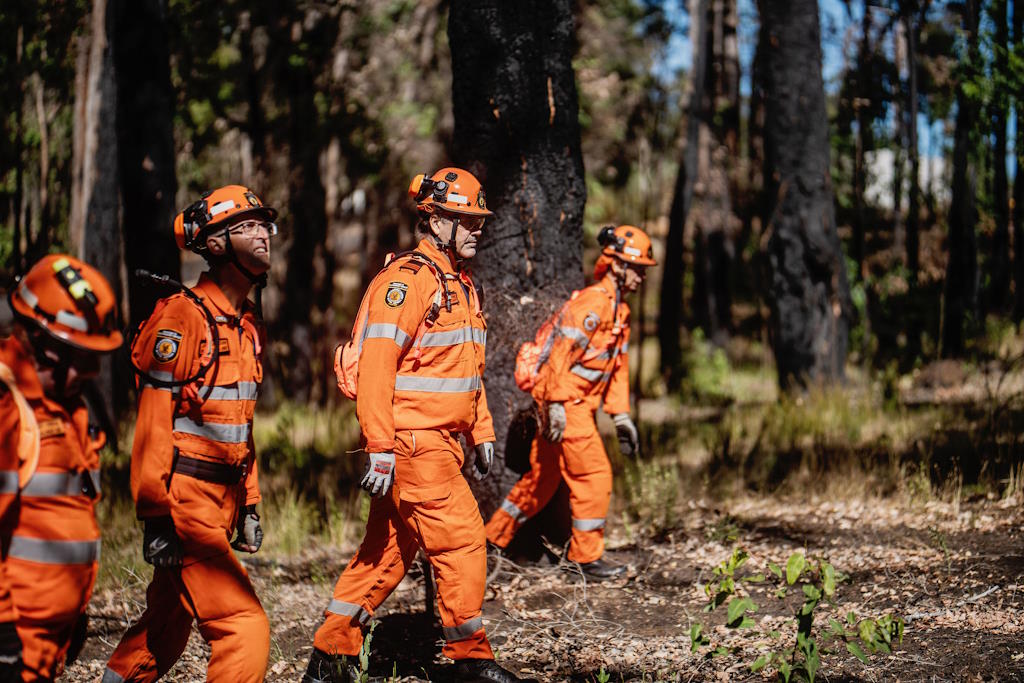
State Emergency Service
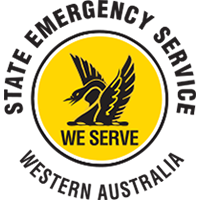
The SES provides invaluable response capabilities, providing essential response during storms, cyclones and floods. They also work closely with WA Police on land searches and rescues.
There are both responder and support roles available, depending on your location and the current need. Here’s some examples of roles which may be available. It is best to search this website for units who are recruiting or contact the SES Association.
SES Services Responder Roles
Storm and Water Damage Team
As a member of this team, you will respond to calls for help after a storm or severe weather. This involves removing debris, helping community members protect their homes from rain and floodwater, and helping to make temporary repairs to damaged property.
Land Search Team
As a member of this team, you will be trained to search for people who are lost or in distress, or whose lives are endangered. In this role you will search for signs of the missing person on foot, by vehicle or aircraft, or using dogs and horses.
Rescue Team
As a member of this team, you will be trained to rescue people after an incident. This involves stabilising structures, participating in surface search and rescue operations, providing basic medical treatment and helping to remove causalities from emergency sites.
SES Services Support Roles
Operations Room Team
As a member of this team, you will coordinate resources and make timely operational decisions. Your role will involve using information systems, GIS/mapping tools and resource management systems to receive, track, record, display and communicate incident information.
Transport Officer
As the Transport Officer, you will ensure vehicles are ready for use at all times. In this role you will work behind the scenes to keep vehicles well maintained, cleaned and fully equipped for the responding teams. Mechanical interest and ability is beneficial.
Social Media Coordinator
As the Social Media Coordinator, you will be responsible for managing all SES social media platforms. You will work within the guidelines of your unit to provide the community with safety information, updates and alerts. You will also promote SES volunteering and functions.
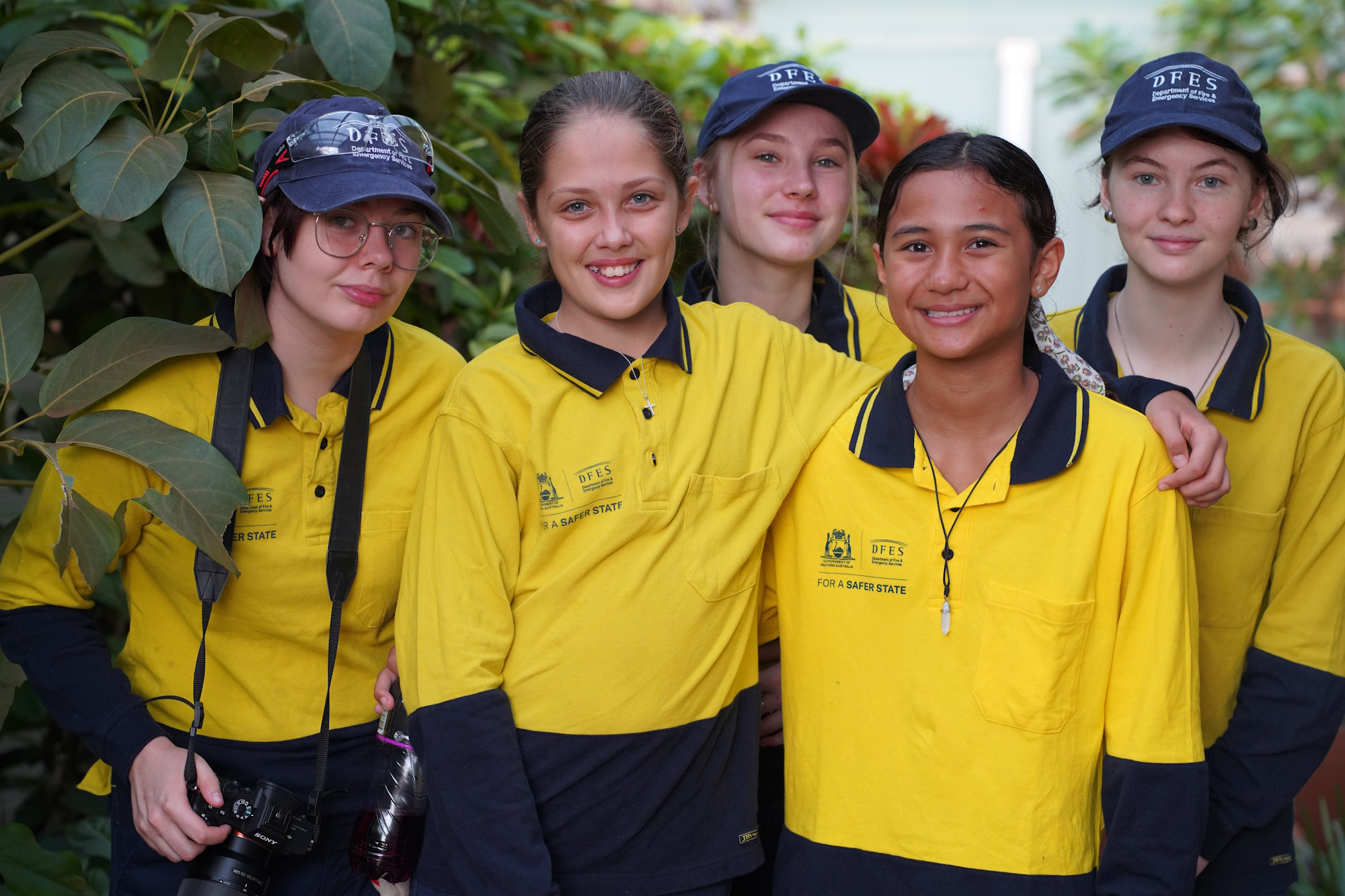
Youth in Emergency Services
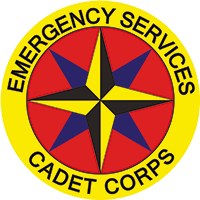
We believe volunteering is for everyone. If you’re aged 11 to 18 years, we welcome you to join our programs. You can take up many opportunities across WA, and get involved with our emergency services to learn about their different functions including firefighting, searches, rescues and water safety.
Consider joining as a cadet through your local secondary school, or volunteer in a junior/cadet program at your local brigade group or unit. You’ll develop valuable, lifelong skills that help build your confidence and capabilities. You’ll also have the opportunity to make new friends as you contribute to your community.
Youth Programs Responder Roles
Juniors or Cadets in Brigades, Groups or Units
If you’re between 11 and 18 years of age, you can volunteer at your local emergency services brigade, group or unit throughout WA. The volunteers there will support you to develop the basic skills you will need to become an active member of an emergency services team. Juniors and Cadets can take part in a range of opportunities including camps, Duke of Edinburgh Awards, first aid training and other recognised skills training.
Learn skills
As an Emergency Service Cadet/Junior you’ll undergo interesting and challenging training. This provides many practical life skills and helps you develop leadership. You’ll learn about teamwork and use your talents and initiative. Training helps build your community responsibility and sense of service.
Youth Programs Support Roles
Emergency Service Cadet Corps (ESCC)
Join the Emergency Services Cadet Corps (ESCC) and follow the training and service ideals of our State’s varied emergency services. You’ll be part of the Cadets WA program, working together with your local emergency services.
Units statewide
Volunteers are part of something bigger. Currently there are over 2,300 cadets and adult leaders or instructors throughout Western Australia. They train and serve in 38 ESCC units, and each has a unit coordinator and several instructors to provide leadership.
ESCC units in schools
Join the Cadets WA program at your local secondary school. The programs are hosted in schools across metropolitan and country regions.
Get involved
If you’d like more information or to find out how you can get involved with volunteering in your local area, contact our DFES Youth Programs Coordinator on (08) 9395 9410 or [email protected].
Awards and Recognition

The valuable contributions made by emergency services volunteers are recognised by numerous organisations, including DFES. Every year, DFES hold annual volunteer awards for each of the key services, recognising the incredible work of volunteers around WA.
